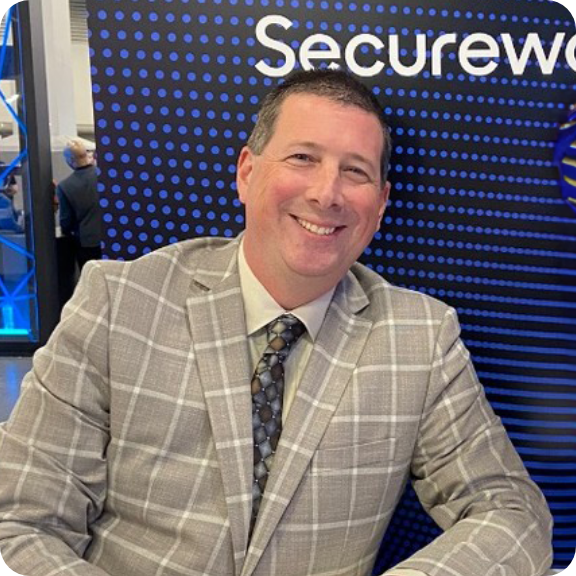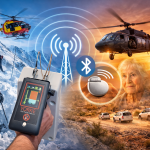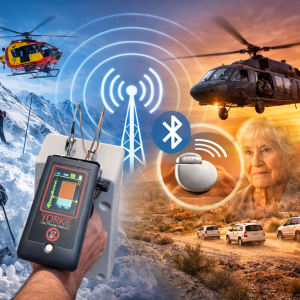Your cart is currently empty!
Securing Our Ports of Entry

If this most recent presidential election has taught us anything about national priorities, it has told us that border security is atop that list. President Trump’s mass deportation and aggressive ICE tactics may be getting all the headlines lately, but I’m more concerned about border security behind the scenes. Our ports of maritime gateways and Ports of Entry (POE) face major challenges not just from illegal migrants, but from an assortment of illicit substances and items also brought across the border.
The good news is that deadly substances like fentanyl are actually in decline crossing our border in 2025. The bad news is that more than 90% of interdicted fentanyl is stopped at POEs, where cartels attempt to smuggle it primarily in vehicles driven by U.S. citizens. If the vast majority of illegal drugs are being muled or driven across borders by U.S. citizens, just imagine all the other illegal substances that are not being seized due to the false assumption that undocumented illegals are responsible for the bulk of illicit items. We need better methods to enforce our borders. We need a technological edge.
According to Fox News, “Pending completion of investigation and risk mitigation, all Agents will stand down the use of their BWCs [body worn cameras] until further notice,” Reports found on Reddit claim that anyone with a smartphone can detect the Bluetooth used by agents wearing bodycams to successfully navigate through weakspots in the border security. But the wireless woes don’t stop there.
Maritime ports serve as critical nodes in the global supply chain, facilitating the movement of goods across continents. In 2024, DP World’s ports alone handled a record 88.3 million twenty-foot equivalent units (TEUs), marking an 8.3% increase from the previous year . The Port of Los Angeles, the busiest in the United States, processed over 10 million TEUs in the same year . However, the sheer volume of container traffic presents significant challenges in ensuring the security and legality of goods transported. With thousands of containers stacked high and the demand for imports to be immediately shipped out across the U.S., it’s hard to imagine any thorough searches for contraband to be executed according to The Wall Street Journal.
A growing concern in maritime security is the use of GPS and Bluetooth Low Energy (BLE) trackers, such as Apple AirTags, Samsung SmartTags, and Tile devices, to monitor shipments illicitly. These small, inexpensive devices can be discreetly hidden within cargo, enabling unauthorized tracking of containers. Such practices can facilitate the theft of goods, unauthorized surveillance, and the circumvention of customs regulations. However, tools are being introduced to detect an assortment of wireless hackers, contraband and illegal tracking.

In recent years, we’ve seen a steep rise in tracking technology. From tiny GPS trackers to Apple’s AirTags, consumers and industry sectors have all benefitted from cheap, ubiquitous technology that allows tracking of items around the world for little to no cost at all. Our borders and citizens depend upon US military, border and defense agencies to stay on top of the latest threats with high tech countermeasures. As POEs and border security issues continue to drive elections, budgets and technology, we will continue to see more stories of contraband crossing our borders. The only way to ensure border security is to arm agents with technology and training to effectively locate illegal items and undocumented immigrants.

Scott Schober
CEO | Author | Speaker at Berkeley Varitronics Systems
Scott Schober presents at cybersecurity and wireless security conferences for banking, insurance, transportation, construction, telecommunications and law enforcement industries. He has overseen the development of dozens of wireless test, security, safety and cybersecurity products used to enforce a “no cell phone policy” in correctional, law enforcement, and secured government facilities. Scott regularly appears on network news programs including Fox, Bloomberg, Good Morning America, CNN, MSNBC, NPR and many more. He is the author of 'Senior Cyber', 'Cybersecurity is Everybody's Business' and 'Hacked Again', the “original hacker’s dictionary for small business owners” - Forbes Magazine.
Latest Posts
Have questions?
Berkeley sales and engineering staff will answer all of your technical, delivery and pricing questions. Contact us today.






Leave a Reply